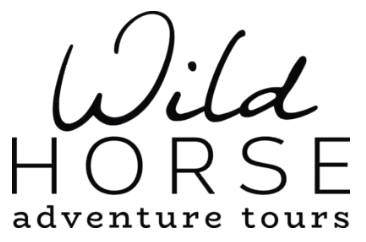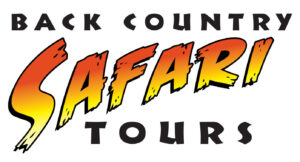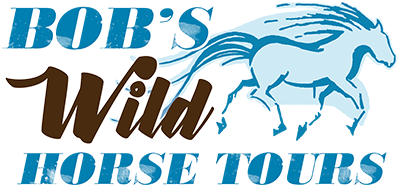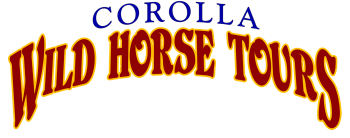A Guide to Wild Horses in the OBX
Where to See Wild Horses on the Outer Banks
Wild Horses of the Outer Banks
The wild horses of the Outer Banks are a remarkable sight, roaming freely across the region's diverse landscapes. The most notable herd, the Corolla Wild Horses, can be found on the 4x4 beaches of Currituck County, where they wander along the coastline and through dense maritime forests. This unique experience allows visitors to observe the horses grazing on the dunes, relaxing by the water, or moving through the soundside marshes. Whether you choose to explore on your own or join a guided tour, encountering the wild horses of the Outer Banks is an unforgettable experience.
Best Places to Stay for Seeing Wild Horses
The Corolla Wild Horses roam freely on the 4x4 beaches, which begin when the pavement of Highway 12 ends in Corolla. The 4x4 beaches are made up of vast dunes, soundside marshes, and dense maritime forests. Driving on the 11-mile stretch is permitted, and there are rental homes on the 4x4 beaches to offer a one-of-a-kind Outer Banks vacation experience. The Corolla Wild Horses roam freely on the 4x4 beaches, including through yards of vacation homes.
Sometimes the horses are on the beach and other times they are grazing behind the dunes. If you do not have a 4-wheel drive vehicle or prefer not to drive on the sand, there are several wild horse tour companies in Corolla. A wild horse tour can be an exceptional Outer Banks vacation experience for all ages.
OBX Horse Tours
Thousands of visitors to the Outer Banks each year are captivated by wild horse sightings. While it is possible to drive yourself onto the 4x4 beaches to look for wild horses, there are several locally owned and operated wild horse tour companies in Corolla. Outer Banks horse tour companies offer knowledgeable guides who are experienced with driving on the 4-wheel drive beaches. Wild horse tour operators often have insights into where the horses hang out, and they work closely with the Corolla Wild Horse Fund to assist with monitoring and protecting the herd.
History of Wild Horses in the OBX
Legendary wild horses, sometimes referred to as Banker horses, have roamed the Outer Banks coast for centuries. The wild horses have distinct features, as they are descendants of Spanish Mustangs originally brought over on Spanish ships in the 1500s. Outer Banks folklore is rich with theories about how the horses thrived and became a wild herd. One strong theory is that the horses survived shipwrecks just off the coast and swam to shore. The Corolla Wild Horses are unique to the Outer Banks and cannot be found anywhere else. The wild horses are smaller than most domestic horses, with shorter legs, a compact physique, and fluffier fur. The horses that graze the 4x4 beaches in Currituck County are the only wild herd of Spanish Mustangs remaining in the world.
For hundreds of years, the Corolla Wild Horses have prospered, becoming an important part of the ecosystem on the Outer Banks. The herd’s size was estimated to be in the thousands in the early- to mid-1900s but is now around 100 horses. The number of wild horses in the herd dramatically decreased as development and the human population increased on the Outer Banks.

Nowadays, the Corolla Wild Horses roam freely on the 4-wheel drive beaches in Currituck County, from the ocean to the sound. The horses are untamed and can exhibit territorial tendencies, such as stallions battling over a mare or food. Visitors to the 4x4 beaches are advised to never approach or feed the Corolla Wild Horses for the safety of both.
In addition to the Corolla Wild Horses, there is another herd of Spanish Mustangs in the Outer Banks on Ocracoke Island. The origin story of the Ocracoke Banker Ponies is similar to that of the Corolla Wild Horses, involving Spanish explorers and shipwrecks. The Ocracoke horses were once wild on the island, however, they have been penned and cared for by the National Park Service since 1959.

How to Protect the Corolla Wild Horses
Frequently Asked Questions
For the safety of both you and the horses, slowly move away and do not touch the wild horse. A Currituck County ordinance states that you must stay at least 50 feet away from the Corolla Wild Horses at all times, even if they approach you.
The Corolla Wild Horses have a specialized diet that includes beach grasses and plants native to the 4x4 beaches.
Wild horses can only digest indigenous plants. The horses cannot tolerate foods that domesticated horses are fed, like apples, carrots, watermelon, and food scraps. Non-native foods can cause choking or painful colic and, in some cases, kill wild horses. It is illegal to feed the Corolla Wild Horses.
The salty ocean is to the east, but fresh water can be found in various places throughout the 4x4 beaches. The horses drink fresh water from the canals and large puddles that collect rainwater.
The wild horses are always on the 4x4 beaches, however, it may be easier to find them during the warmer months of the year, March through November. The horses are known to hunker down during the winter.
It is illegal to pet wild horses. You must remain at least 50 feet away from them at all times.
Stay back 50 feet from the wild horses, do not touch them, and do not feed them. If you see someone disrespecting the horses or suspect a horse is sick or injured, call Currituck County Sheriff’s Department at (252) 453-3633. Support the Corolla Wild Horse Fund, a local nonprofit organization committed to the preservation of the herd.
Wild horses can sense a change in air pressure that indicates a storm is coming. They head for higher ground and gather under the strong live oak trees. The wild horses huddle together in groups with their tails toward the wind to ride out the storm.
Support the Corolla Wild Horse Fund
Corolla Wild Horse Fund (CWHF) was established in 2001 to protect, conserve, and responsibly manage the herd of wild horses that roam the Currituck Outer Banks 4x4 beaches. The CWHF actively monitors the herd of Corolla Wild Horses and immediately responds when an issue arises. A significant part of the CWHF is educating the public, teaching the history and relevance of the herd, while also communicating important information on how to keep the horses safe.
Support the Corolla Wild Horse Fund by visiting their website and be sure to stop by their museum and gift shop in Corolla Village.








